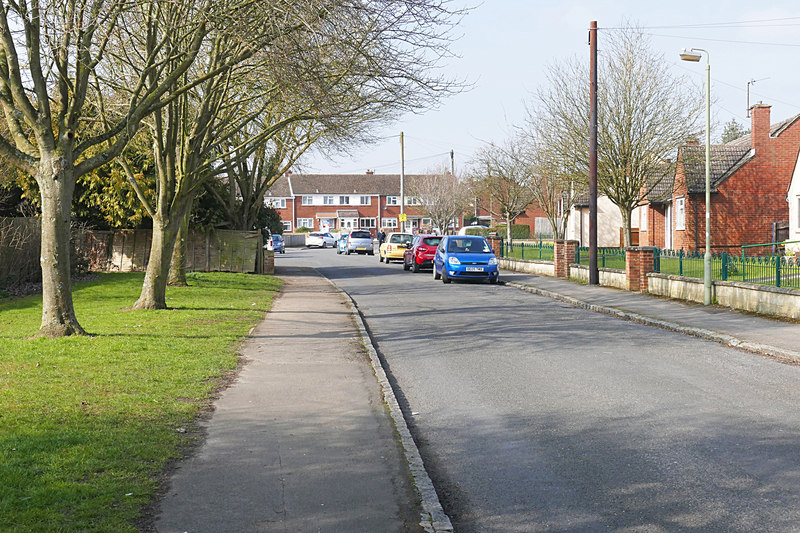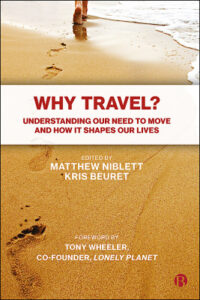Chinese tourists in Kidlington – travel and the search for authenticity

A typical street in Kidlington, Oxfordshire – a magnet for Chinese tourists © Copyright Alan Hunt and licensed for reuse under this Creative Commons License
30th November 2016
Over the summer, residents of the large Oxfordshire village of Kidlington were baffled to discover their seemingly unremarkable home had become a magnet for coach-loads of Chinese tourists. Tourists were spotted enjoying the sights of Benmead Road, a street of modern semi-detached houses, taking photos of everything from the gardens in bloom to wheelie bins and skips. Puzzled as to why people would wish to travel half way across the world to see the most ordinary-seeming street, the BBC arranged for brief questionnaires to be handed to the tourists and discovered that it was the very ‘ordinary’ nature of the place that was attracting the tourists’ interest. One of the respondents answered that they were visiting Benmead Road “because we don’t have [these] in China. Here, we are looking for the true sense of this country.”[1] The visitors viewed it as an attractive example of the typical British street, an ‘authentic’ picture of British village/town life – and one that is quite different from that of their home environment.
The urge to experience ‘authenticity’ and the ‘exotic’ has long been at the heart of the human urge to travel. Guidebooks and travel writing abound with advice on how to escape the ‘tourist traps’ and experience the ‘real’ destination. In recent years there has been a proliferation of niche tourist products offering ‘authentic’ experiences, such as ‘slum tours’ in the favelas of Brazil, Buddhist temple-stays in South Korea, visits to remote hill tribes in Thailand and now, it seems, tours of Benmead Street, Kiddlington. Whilst it might raise some eyebrows, or even giggles, to think of our own ordinary experience as being exotic to others, tree-lined streets of semi-detached house are by no means the norm for most of the world’s population. As the number of tourists from non-Western nations rises – last year outnumbering for the first time those from the West – residents of Western nations may find themselves becoming more often the object of the ‘tourist gaze.’[2]
The idea of ‘authenticity’ is to a great extent in the eye of the beholder – visitors often have an idealized version of a destination in their imaginations – or the tour group operator, who may define for the visitor what they ought to see. And the way in which visitors choose to experience authenticity can vary greatly. Many people like to draw a distinction between ‘tourists’ and ‘travellers’ along a scale of how much the visitor engages with the place and culture they are visiting. For example, in his recent book Far and Away, Andrew Solomon argues that travellers “venture forth because they want to experience a place, not just see it” whilst tourists are more dissociated and move about “in clusters.” This desire for dissociated viewing – seeing the sights only – is perhaps taken to an extreme in the increasing popularity of manufactured destinations which include a replica of the Cambodian Angkor Wat in India, at least two replicas of the Eiffel Tower in China and a ‘Tropical Islands’ resort 50km south of Berlin [3]. For tourists at these manufactured destinations a view of something famous and ‘exotic’ is more important than the authenticity of the experience.
As the residents of Benmead Road found, the motivations of tourists can sometimes be surprising. But understanding those motivations is crucial if we are to plan for tourism that will better meet the needs of the tourists whilst benefitting the people and places that they come to see. The ITC’s Why Travel? Project has been set up to explore the complexity of human travel motivations in the belief that a better and more realistic understanding of why we travel can and should be used to make better decisions about travel at individual and policy levels. The project brings together experts from across the arts, humanities and sciences, exploring cutting-edge research and modern trends, as well as looking back into our evolutionary past and human history for insights into why we travel in the ways we do. For more information on the project, including expert views and news stories, see www.whytravel.org.
[1] http://www.bbc.com/news/uk-england-oxfordshire-37820663
[2] John Urry (1990) The Tourist Gaze: Leisure and Travel in Contemporary Societies, Sage Publications
[3] Dr Hazel Andrews will discuss this further in her chapter on Tourism in the ITC’s forthcoming book Why Travel?


